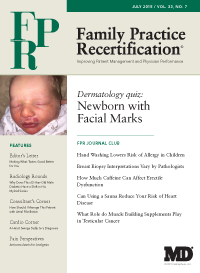What Role Do Muscle Building Supplements Play in Testicular Cancer
With muscle supplements being a popular addition to exercise regiments their potential health risks also remain a concern.
Review
Proton Pump Inhibitor Usage and the Risk of Myocardial Infarction in the General Population. PLoS ONE 10(6): e0124653. doi:10.1371/journal. pone.0124653
Study Methods
This case control study included 356 new diagnoses of TGCC and 513 members of a control group from Connecticut and Massachusetts The goal was was to determine if an exposure to the supplements increased risk. All participants completed a standardized structured questionnaire implemented by trained interviewers. The interview included questions about a variety of different factors associated with TGCC including muscle building supplements.
Muscle building supplement use was defined as at taking them at least once a week for ≥ 4 consecutive weeks. The interviewers were trained to discuss 30 different types of muscle building supplement powders or pills. The most common ingredients in these products were creatine, protein, and androstenedione (or its booster) that were determined from the product ingredient list. Using logistic regression models, the odds ratio of TGCC were developed based upon muscle building supplement use.
Results
Use of MBS increased the odds for the development of TGCC (OR = 1.65, 95% CI: 1.11-2.46). This association was significantly stronger among those who used muscle building supplements earlier in life, in men who use multiple types of muscle building supplements, and for those who use them for longer periods of time. With regard to time, relatively continuous use for 36 months or more provided the greatest increase in risk. With regard to age, initiation before age of 25 increased risk.
Conclusions:
The use of muscle building supplements increased the risk of testicular germ cell cancers.
Discussion
Young men receive a variety of messages concerning their physical appearance and athletic performance. Much of their self-worth can be associated with these parameters, and teens in particular will look for advantages to obtain what they view as an optimum physique. Likewise, sports coaches and trainers, as well as numerous web-based messages imply that using muscle-building supplements will result in the body they hope to have.
This study suggests that muscle building supplementation is a dangerous habit. These agents are highly unrestricted and may contain a variety of chemicals including steroid precursors. Their use, just like true steroids, should be aggressively discouraged.
If an intervention were developed that reduced the incidence of TGGC by 20%, especially a cancer of young people, it would be hailed as a medical breakthrough. Twenty percent of the cases of TGCCs were associated with muscle building supplementation use. This preventive intervention does not require a special test or an intricate and expensive procedure or prescription. Rather it involves us taking careful histories of our adolescent and young adult males and aggressively counseling against muscle building supplementation use.
Adolescence and early adulthood is a time of risk-taking, and use of muscle building supplements may appear to be perceived as low-risk with high-ego gratification. Nevertheless, their risks are true. Do not be afraid to say using these agents can “increase the risk of testicular cancer.” Despite adolescents’ and young adult males’ interests in appearing stronger, losing their testicles may be a great enough influence to have them reconsider this habit.
